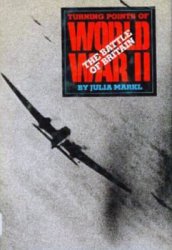Heightened class conflict in the Progressive Era sometimes involved the direct intervention of the government. In the Mooney-Billings case, political protests against military preparedness led to the conviction of two labor leaders for murder. The case became a celebrated cause for labor and radical reformers. On July 22, 1916, a bomb went off at a Preparedness Day parade in San Francisco, California. The Pacific Coast Defense League had sponsored the parade, following a successful one in New York City, to strengthen public support for military armament during World War I. Local newspapers estimated that the parade in San Francisco had more than 50,000 participants. Ten people were killed and 40 seriously injured in the bombing. The police responded inconsistently. It was not until two and a half hours later that police roped off the scene, and authorities did not supervise the collection of evidence. Consequently, souvenir hunters combed the site, destroying relevant evidence along the way. As a result, the police department later had to publish a request for the return of evidence found at the scene to authorities.
In a climate of wartime hysteria, city leaders and newspaper editors accused Preparedness opponents and anarchists of the bombing. With irresponsible journalism feeding public outcry, five local radicals were arrested and indicted for murder. Out of the four that were tried, two were convicted. The men who were convicted, Warren Billings and Tom Mooney, were left-wing activists who had participated in local labor struggles over the years. Billings received a sentence of life imprisonment, Mooney death by hanging.
Evidence soon emerged that perjury had been committed and that the prosecution had withheld evidence. After his conviction, Mooney became internationally famous as a martyr for radicals, organized labor, and defenders of civil rights. Representing over 50 labor and radical organizations in San Francisco, the International Workers Defense League, of which Mooney was an active member, petitioned and lobbied for the pardon of Mooney and Billings. They also sent organizers around the country to raise funds and awareness for the legal defense of the two men. Some people, however, saw the two men as a radical threat to patriotism and law and order during World War I. In March 1918, the California Supreme Court upheld Mooney’s conviction. Two weeks before Mooney was scheduled to hang, Governor William D. Stephens commuted his sentence to life imprisonment. Stephens said that President WOODRow Wilson had made repeated requests for him to do so and that new evidence had emerged in the case, though the governor failed to mention what the evidence was.
Radicals and organized labor supported Mooney’s cause for another two decades. In 1939 Governor Culbert L. Olson declared that he believed Mooney was innocent and pardoned him, stating that the conviction had been based on perjured testimony. Billings, however, remained in prison for 10 more months after Mooney’s pardon. Olson could not pardon Billings without the approval of the unsympathetic state supreme court in California. When the court repeatedly voted against pardoning Billings, Olson commuted his sentence to time served. In a ceremony the day after Billings was released, Olson apologized for not being able to pardon him, noting that he thought that Billings was innocent. In 1961, 45 years later, Governor Edmund G. Brown gave Billings a complete pardon after he received the approval of the state supreme court.
Further reading: Richard H. Frost, The Mooney Case (Stanford, Calif.: Stanford University Press, 1968); Curt Gentry, Frame-up: The Incredible Case of Tom Mooney and Warren Billings (New York: W. W. Norton, 1967).
—Glen Bessemer




 World History
World History









